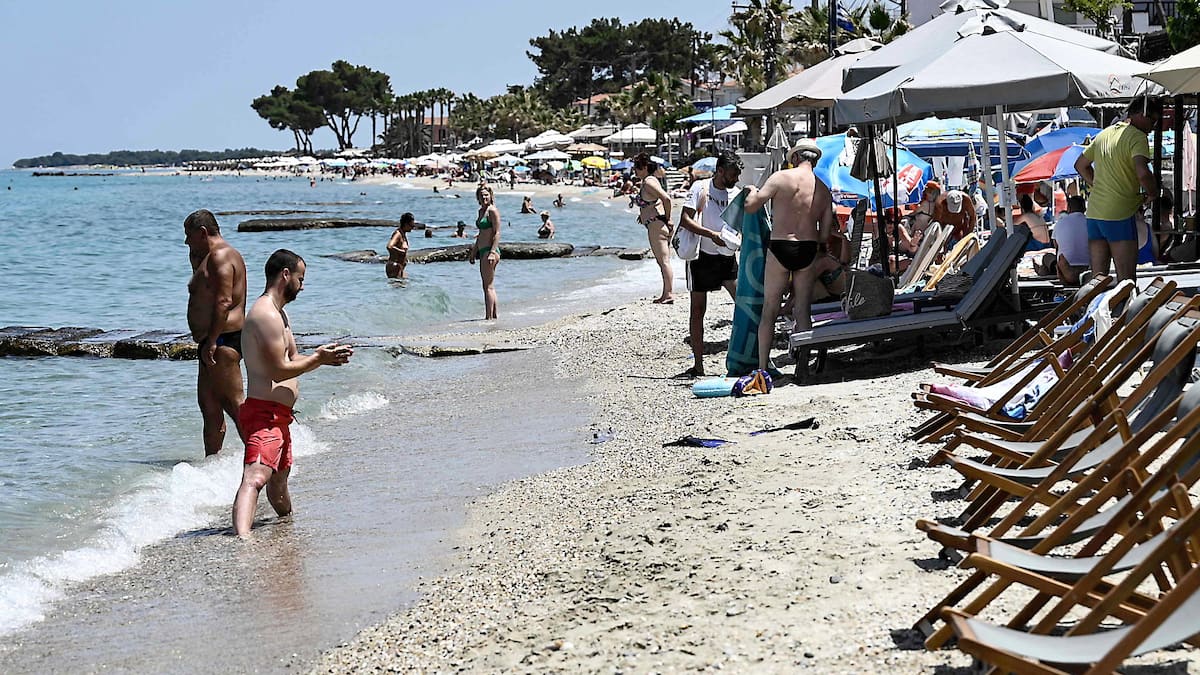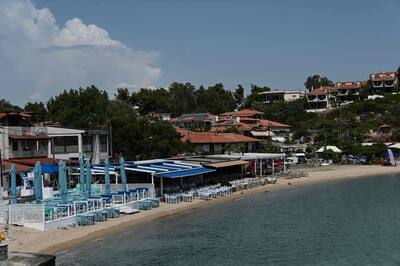
On a beach on Greece's Chalkidiki peninsula, Aegean waves are licking the legs of bar tables and chairs placed in the sand… quite illegally.
But thanks to surveillance drones, the owners of the two establishments in this tourist area of northern Greece may soon be forced to remove their facilities and be punished.
To combat the illegal privatization of many beaches, Athens also relies on an app that allows everyone to report crimes to the authorities.
And from summer to summer, the anger of Greeks continues to grow, as they see their swimming areas shortened in favor of private beaches, “beach bars” or bars “with their feet in the water.”
To rent two mattresses and an umbrella in Greece, you have to pay at least 20-40 euros, sometimes much more on some popular islands.
“The entire beach has been invaded,” says retiree Yevgenia Rapti (64 years old), who was met by AFP in the coastal resort of Pefkokhori in Chalkidiki.
“Business has arrived on the coast, with tables, chairs and deckchairs,” denounces the woman who owns a holiday home on the peninsula known for its clear waters and wonderful beaches.
With or without a license
“When we bought the house forty years ago, it was completely different,” she recalls sadly. “The beach was empty and it was nice to lie there.”
Giorgos Theodoridis, one of the leaders of an activist group, adds: “The problem with the beaches in Greece is that there are entrepreneurs, with or without permits, who occupy parts of the coast to a degree that ordinary citizens cannot access.” On Facebook, which has more than 12,000 members.
In May, the Finance Ministry launched its first checks in Pefkichori and a nearby seaside resort.
Drones flew over the beaches and their images will be compared with the data stipulated in the concession contract to identify possible violations.
While the 2024 tourist season looks promising in Greece after 2023 set a record with 33 million visitors, Athens is also counting on a new application called “MyCoast” that allows, in addition to allocating beach privileges, to report violators.
On a beach in Chalkidiki, Giorgos Theodoridis, holding his cell phone, explains: “I can click directly on the app at the location I am at and report that (this private beach) does not have a licence.”
Since the end of April, about 6,000 reports have been sent to the authorities, including 680 for the Chalkidiki region alone, whose coastline extends for more than 500 kilometers.
In March, the government introduced new rules for beach rentals. Now umbrellas and deck chairs must be at least four meters from the sea and are not allowed to be rented on beaches less than four meters wide.
Citizens' movement
All of these measures were taken after the state of anger that shook Greece during the summer of 2023.
Starting on the island of Paros, in the Cyclades Islands, a citizens' movement called “Beach Towel” began demonstrating on illegally occupied beaches.
“Tour companies have the right to cover half the beach they rent from the city council or the state and must leave a strip of coastline free to allow non-paying swimmers.” [de matelas de plage] Mr. Theodoridis explains.
The result: On the very touristy island of Rhodes, the authorities closed a beach bar. He has set up deck chairs right in the sea.
Finance Minister Kostis Hatzidakis said on this occasion: “When we say there will be a system on the beach, we really mean it.”
More than 1,200 beach concessions are under tender this year, with another 6,500 concessions under implementation, according to authorities.
But some tourism operators assert that the public services responsible for processing their applications are understaffed and have had no choice but to start the season without a licence.







